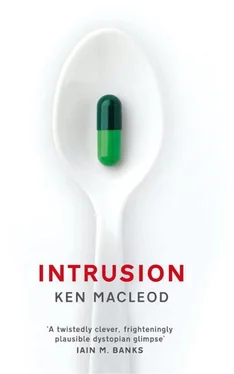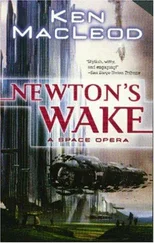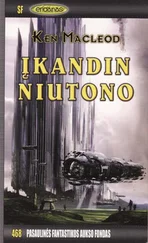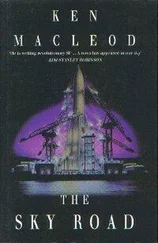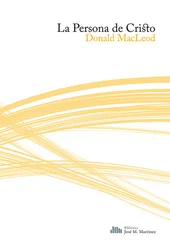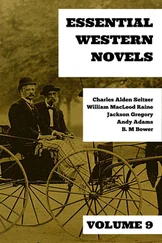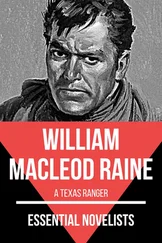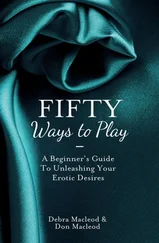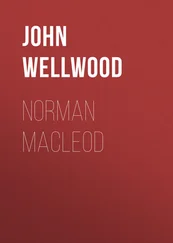Hugh watched it out of sight, shook his head as if to clear it, blinked, then cycled on until he spotted an electronics shop. He pulled over, locked the bike to a lamp post and went in. A bright, cluttered cave, most of whose customers at this time of day were smartly uniformed schoolchildren on their lunch hour. Hugh bought the cheapest and most breakable (in every sense) computer he could find, and made a point of paying by cash. Ten minutes later he sat down in a café with a tall glass of lassi and a bowl of saag paneer , for which he paid by cash, and used the new computer to check out flights east. After a good quarter-hour of poking around, he made a provisional booking for three seats on a flight the following morning from Gatwick to Prague, putting down a non-returnable deposit of two hundred pounds from his bank account.
As he stood up and shifted the empty glass and bowl on to a tray, the edge of the tray nudged the computer off the table. When he picked it up, the screen was cracked, the resolution clouded.
He muttered under his breath, laid the broken device on the tray, and returned the tray to the counter.
‘I’m sorry,’ he said, as he handed it across, with an indicative downward glance. ‘Could you dispose of the computer for me? Piece of junk.’
‘No problem,’ said the guy behind the counter. He took the computer off the tray, placed it under the counter, and put the tray with the dishes on the rack behind him. ‘I’ll recycle it later. Have a nice day!’
‘You too. And thanks. Good afternoon,’ said Hugh, and left.
He unlocked the bike, wheeled it across the street, mounted and set off for home. As he rode, he wondered if he’d done enough. If he was under heavy surveillance – no. But otherwise, if it was all still being neural-networked by the bots, one travel plan would be flagged as real, and one as a laughably obvious diversion. The trouble was, he had no idea which.
It was a summer evening like one of those Auden had imagined for after the revolution, with light traffic and loud sound systems standing in for the bicycle races and exploding poets. Hope walked along East West Road with her guitar in its case slung from her shoulder. A big backpack, with smaller bags stacked perilously on top, was strapped to a collapsible two-wheeled trolley, which she trundled in front of her. Hugh, with a frame rucksack on his back, led the way. Nick, with Max on his shoulders and carrying a token knapsack, scampered alongside him.
The lowering sun was getting in her eyes a bit, so she had her glasses on. Local situation reports, summarised from police radio chatter, social and mass media, and radio-station call-ins, scrolled in the bottom left-hand corner of her shaded vision. Nothing much was happening: a traffic snarl-up at Highbury Fields, a street scuffle out in Muswell Hill. In the bottom right corner a black app, patched from Hugh’s phone, traced the slow progress of the truck on which Hugh had hooked a lift. Right now, it was negotiating the one-way system at King’s Cross. With Holloway Road about ten minutes’ walk away, they were in good time to meet it.
The trolley wheels juddered and bumped on the uneven pavement, each jolt giving Hope a split-second advance warning of where to place her heel, and each lurch making her grab for one of the upper bags. It didn’t seem right that at this time in history, cracked and tilted flagstones should be a nuisance, but icy winters and rainy summers did their work regardless: freezing and erosion, two of the implacable processes that James Hutton had, with a wild surmise that had led him to search for and find the rocks that demonstrated it, held to account for the whole history of the Earth. No vestige of a beginning, no prospect of an end…
A bag slithered. Hope caught it and stopped to sling it and another two awkwardly on her shoulders, and pressed on with a surer step. She must, she thought, look a bit oppressed, trudging along like this behind the men of the house. In this instance she preferred walking behind, because it let her keep an eye on them.
Minute yellow flowers drifted down from a tree she passed under, around which a peculiar smell, like honeysuckle but with a sharper, almost aniseed note, hung like a vapour. The flowers, or perhaps floating seeds, looked like tiny cogwheels. It bothered her that she didn’t know enough to identify them as natural or synthetic. If for any reason she never returned from this flight, or holiday, or adventure, she would always regret not having done more with the back garden. She’d planted a few rose bushes and a clump of sunflowers, but most of her effort in the garden had been a holding action against its return to the Thames Basin’s local version of the climax community, slightly contaminated by stray syn bio weeds.
Her mind returned to what Hutton saw, the slow cycle of erosion and uplift, and she found herself wondering about whether it might be possible to tell if Hugh’s visions showed the past or the future, according to whether or not synthetic biology plants featured in what he saw. It needn’t even be in the landscape, in the visible biota. It could be some scrap or trace in a garment, a tool or a jewel. A whole new discipline rose in Hope’s imagination: psychochronobotany.
She laughed, and hurried on forward to where Nick and Hugh stood at the corner of Holloway Road, waiting to cross, silhouetted against the sunset sky.
The lorry came up Holloway Road, quiet on big fat tyres, a cab up front and a long container trailer behind. When it was about a hundred metres away, Hope watched its icon on her glasses brighten and begin to flash. Hugh stepped forward, waving his phone like a hitch-hiker. The truck slowed, indicated, and pulled in as close to the side of the road as it could get, the cab just beside the waiting family.
Hugh’s thumb twitched on his phone, and the side door of the cab swung open. He scrambled up the ladder, hauling his backpack, then turned around and reached out for Nick as Hope handed him up. Hope passed up her guitar and bags, folded the trolley, and climbed into the cab. Hugh was in the driver’s seat, Nick in the middle, both strapped in. She reached to slam the door, but it swung slowly shut by itself, closing with a muffled thump and a firm snick, like a bank vault.
‘Buckle up, Mum,’ said Nick, as if trying to sound grown-up. His voice piped a little. It wasn’t often he’d even been in a vehicle, other than a bus. Hope tousled his hair and fixed her lap-and-diagonal strap, settled in, and gave the thumbs-up. Hugh grinned, tapped on his phone, and sat back. The indicator light on the dash flashed, the gear changed from neutral to first, the engine rumbled, and the brakes relaxed with a loud hiss. The lorry pulled out and joined the stream of traffic, up the incline and under the bridge.
Hugh sat back, hands clasped behind his head, obviously tempted to put his feet on the dash. Nick’s gaze switched back and forth from the buildings and traffic to the movements of the gear stick and steering wheel.
‘It’s like there’s an invisible man driving,’ he said.
‘Oh, that’s good,’ said Hope. ‘It’s called the automatic driver, or drone driver, and it kind of is like an invisible man, but it’s a program in the lorry’s computer.’
‘I know that ,’ said Nick, scornfully. He patted the toy monkey on his lap. ‘I was just explaining to Max. I don’t think Max understands AIs.’
‘Oh, I’m sure he does,’ said Hugh. ‘You just have to explain it to him in very simple terms.’
Which, for the next five kilometres or so, Nick did.
Hope woke from a doze. Black road, white lines, blue signs. Bioluminescent trees lined the motorway, the light they cast easily visible because the lorry’s headlights weren’t on – they didn’t need to be, except when behind a human-driven vehicle, and there were none such in the two lanes reserved for vehicles on autopilot.
Читать дальше
